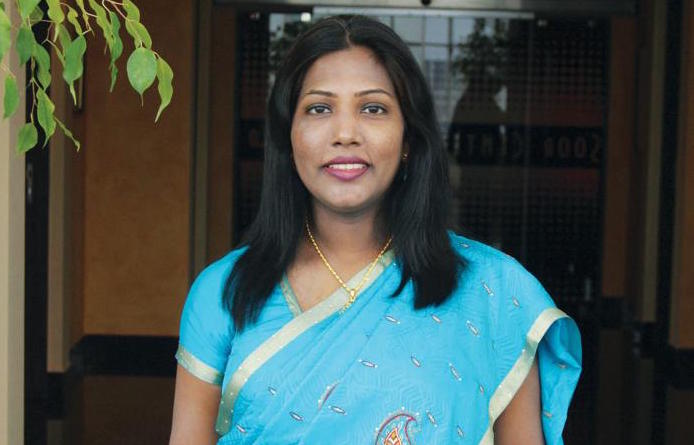By Soor Centre
March is Nutrition Awareness Month, and Dr. Rumia Justine of the Soor Center for Professional Therapy and Assessment has agreed to sit down to talk with us about dieting and nutrition. Dr. Rumia has a degree in clinical nutrition, and has recently completed her doctorate in social work. Her professional area of interest and expertise is lifestyle wellness and health education.
Q: Dr. Rumia, what would you say is the most common issue that you deal with in your practice?
A: Without a doubt, a lack of knowledge regarding proper nutrition. I work mostly with adolescents and college-age patients, but also see children referred by others or brought to the Center by their parents. The majority of these clients are not of healthy body weight; they are either underweight or overweight, and when I do a complete lifestyle assessment and nutritional analysis, I find that their eating habits are very poor. Fewer and fewer families are having a daily meal together, and this opportunity for modeling good eating choices and good eating behavior is lost for children. What replaces this is television and peers. The media is out to make money and their peers are more interested in fitting in than in being healthy. Consequently, all kinds of misinformation and myths are passed around and perpetrated in this age group. For instance, I was told “in Kuwait, Coke is better for you than water.” If you don’t know that soft drinks contain more sugar than you need for a whole day, or an artificial chemical sweetener, and that carbonated drinks leech potassium from the bones, then drinking a lot of Coke is okay, right? I spend a lot of time talking with my clients about nutrition, about good choices, and about healthy lifestyles.
Q: How does lack of knowledge impact your clients’ wellness?
A: Very negatively. The prevalence of juvenile diabetes in Kuwait, of obesity, and of eating disorders of all types indicates problems with lifestyle habits. There are all sorts of studies that provide proof that dieting doesn’t work – the weight comes off temporarily, but the eating habits of the past return, and the weight comes back. For those who are underweight, the health risks are significant as well. Being too thin is the flip side of the same issue – poor lifestyle choices cause serious health problems. Without a complete “renovation” of lifestyle, the client returns to old (bad) habits and the unhealthy body weight returns.
Q: Is there a particular thing that clients are looking for when they come to see you?
A: Definitely! Many of my clients are looking for a quick fix. They come to see me, underweight or overweight, and tell me they are going to attend a wedding in a month and need to “look perfect.” They are very disappointed when I tell them that helping with a problem like this isn’t my profession. I would not be professional if I contributed to unhealthy expectations and poor eating habits. Managing weight and wellness requires a commitment to a lifestyle of making conscious, wise choices. It means educating yourself about good nutrition, finding out what your healthy body weight is for your height and age. It means accepting that exercise must always be a part of life. And lastly, it often means asking for help and support from someone like me so that you have all the tools you need to make those changes permanent. There is no quick fix for optimum health.
Q: Is there one tip you can give our readers to put into practice today that will begin a change toward a healthier lifestyle?
A: Certainly – for parents of younger children, be sure to eat at least one family meal daily. Model good eating behavior and lifestyle choices. For adolescents, I would say eat 5-6 small meals per day, avoid anything fried. Limit junk food – it would be good to eliminate it altogether, but that might not be sustainable for some adolescents. Poor nutrition as you’re growing can have a major negative impact on your later life. And to everyone in general, I would say that lifestyle wellness is a worthwhile investment. If you’re not healthy now, decide that you’re going to begin to make the changes necessary to be healthy, and then ask for all the help you need. From family, from friends, from professionals – to make that happen. No one has ever been sorry they chose to get healthier, but many, many people have regretted that they didn’t.
For more information, please call
2290 1677, visit www.soorcenter.com or follow their Tweets @SoorCenterQ8.











